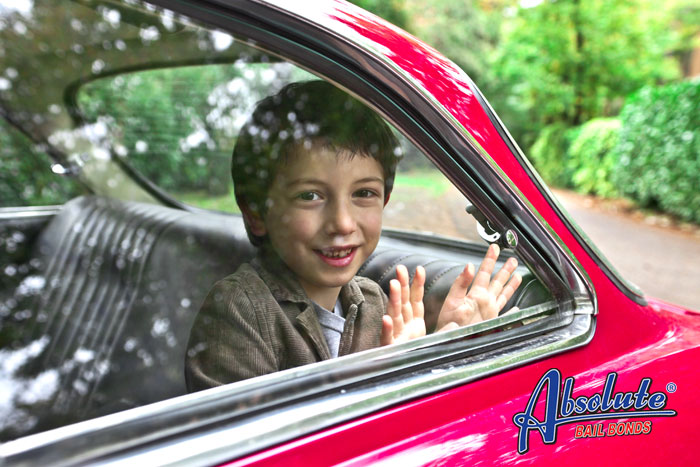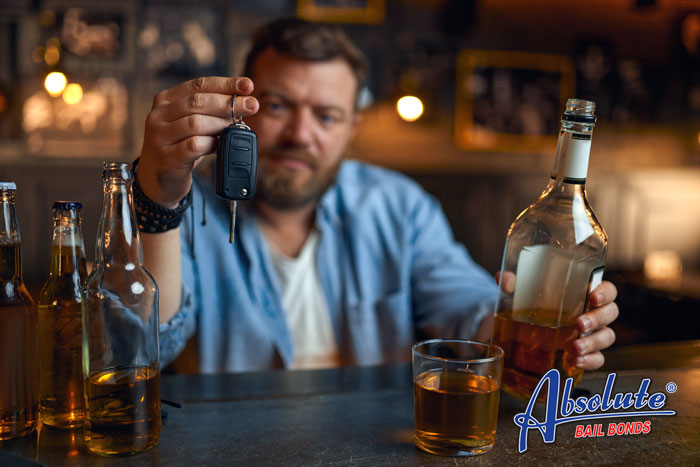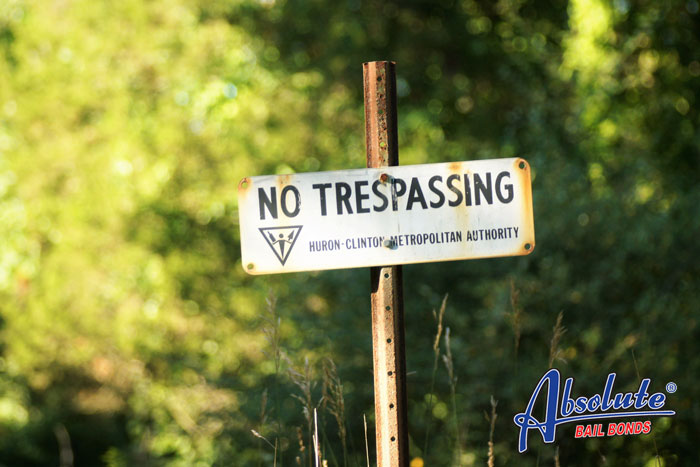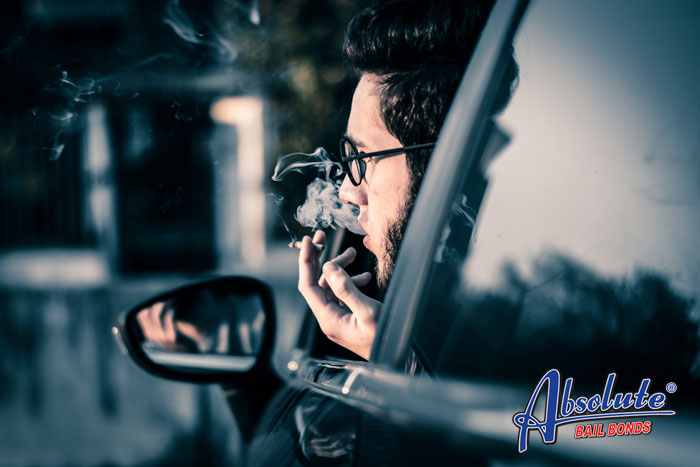
Several Reasons Kids are Left in Hot Cars
It’s that time of year when we are constantly getting bombarded by messages reminding us to not leave kids and pets in hot cars. If you’re one of those people who roll their eyes and question how anyone could forget their child in a hot car you’re not alone. Most people feel the same way, right up to the moment they realize that they left their child in a hot car that is quickly turning into an oven.
According to a CNN report, an average of 38 kids die each year because they were left in a hot car. The majority of these deaths occurred during July.
The best way to make sure you never leave your own child in a hot car is to learn the main reasons this tragic and scary thing happens.
The Normal Routine Shifts
One of the biggest reasons kids are forgotten in hot cars is because something happens to change the parents’ routine. This doesn’t have to be a big change, just a small interruption in their routine such as a shoelace getting untied or getting a phone call. It’s just enough to break the parent’s thought pattern and make them temporarily forget about the child strapped to the back seat car seat.
Kids Get Into the Car
There have been a few instances where the child actually locked themselves into a hot car. This usually happens when the kids are playing and start to explore. They find that the car is unlocked so they crawl inside and engage the child locks. Soon they are overheating but are unable to remember how to get out of the car.
It’s Someone Who Doesn’t Usually Transport Kids
Some kids are left in cars because they’re being transported by someone who rarely drives with children, such as an aunt, grandparent, or neighbor. Usually, this person is doing the child’s parents a favor and simply forgets that they have a child in the vehicle who is unable to get out on their own.
The Parent Is Only Going to be Gone a Second
Some parents feel that since they are only going to be gone for a moment, it’s easier to leave their child in the car rather than bundling the in and out for an errand that’s only going to take a minute. The problem is that the errand sometimes takes longer and the interior of a parked car gets deathly hot extremely quickly.
The Child is Left on Purpose
It doesn’t happen often, but sometimes a parent deliberately leaves their child in a hot car. These incidents usually happen because the parent is upset with the child’s other parent, the parent is suffering from a mental illness, or the parent has decided they don’t like being a parent.
Hot cars are deadly to young kids. There are ways to prevent yourself from accidentally leaving a child in a hot car. Stick reminder notes on your steering wheel. Place your cell phone next to the car seat. Arrange for someone to call you when you’re scheduled to arrive at your destination and remind you about your child. All of these are simple steps you can take to make sure your child doesn’t become a summer car story.

Most Dangerous Cities in California 2022
Like most parts of the world, California has some places that are great areas to raise a family. These areas have good schools, solid sources of income, and a low crime rate. The flip side of the coin is that there are also some extremely sketchy parts of California. A quick look at these crime rates makes it easy to see which are the most dangerous cities in California in 2022.
Oakland, California
Oakland hasn’t had a good reputation in years. The bad reputation is a direct result of the city’s insanely high crime rate, which is 150% higher than the national average. While the city has more than its share of petty crimes, violent crimes are the real concern. Not only does the city have the fifth highest property crime rate in California, based on the numbers, but there’s also a murder every five days.
Emeryville, California
Emeryville and Oakland tend to go back and forth between which one is California’s most dangerous city. Right now they are basically running neck and neck. Emery is home to only 12,000 people, all of whom are aware of how dangerous their zip code is. The interesting thing about Emeryville is that while 1 out of 8 people has recently been the victim of a property crime, the city’s violent crime, and gang-related crime isn’t as high as some other California cities. In Emeryville, there is only a 1 in 72 percent chance of you getting caught in a violent crime. The fact that the violent crime rate is low, indicates that many of Emeryville’s crimes are economically driven.
Commerce, California
While Commerce still earns a spot on the most dangerous cities in California in 2022 list, there’s no denying that as the years have passed, Commerce’s violent crime rate has been steadily decreasing. While it’s getting better, there is still a high rate of property crime, with 1 in 11 residents reporting that they were the victim of a property crime. Commerce isn’t a stranger to violent crime either, during 2020, Commerce was ranked #11 on California’s list of cities with the most reported violent crimes.
Crescent City, California
It’s the same that Crescent City has such a high crime rate because this is a pretty city that provides residents with an excellent climate, easy access to Oregon, plenty of outdoor activities, and close proximity to the Pacific Ocean.
The problem is the crime rate. It’s so bad that Crescent City has landed near the top of the list of California’s most dangerous cities in 2022. What’s truly alarming is that the city has an extremely high sex crime rate. There have already been 10 sexual assaults reported this year as well as 77 additional violent crimes.
What do you consider an acceptable crime rate when you’re weighing the pros and cons of moving to a new California city?

Make Sure you Choose a Reputable Bail Bonds Agency
When you learn that one of your loved ones has been arrested and needs you to help them secure a California bail bond, the kneejerk reaction is to call the first bail bonds agency you see and sign a contract.
Granted, there is a chance that this could work out in your favor and you could find yourself working with a wonderful bail bonds agency that truly cares for both you and your loved one. The problem is that there’s also a chance you could find yourself dealing with a shady business that leaves you in a worse situation than what you were in before you contacted them.
Given how much money you will pay the bail bonds agency and the fact that you’ll be linked to them for several months, it’s in your best interest to choose the most reputable bail bond agency you can find.
Here are some things you should look for that tell you you’re dealing with a reputable company.
Free Consultations
A free consultation is a good sign. Not only does it provide you with a free way of learning about the bail bonds process and the California bail program, but it’s also an excellent way to establish a connection.
If you’re dealing with a reputable bail bond agency, they will use the consultation to answer all of your questions, get some background information on your loved one, and make sure you fully understand how the California bail bond system works. What you shouldn’t experience during the consultation is pressure to make a fast decision and sign with the agency.
Upfront Fees
A reputable bail bonds agency will be upfront about all their fees and charges. The standard fee for a bail bond is 10% of the set bail price. In some cases, it may be a little less if the agency offers a good discount, but it shouldn’t be more.
Some disreputable agencies will try to pad the fee by adding some hidden charges to the bill. If the agency isn’t upfront about all the items on their bill, or if they try to charge more than 10%, you need to look for a different California bail bond agency.
They Have a Good Reputation at the Jail
There’s nothing that says you can’t ask officers and court officials who are hanging around at the jail for suggestions about reputable bail bond agencies. They’ll probably be happy to provide you with a few ideas.
Absolute Bail Bonds in Lynwood has been operating in California for several decades. We have a reputation for fair prices, outstanding customer service, and for writing bail bonds and springing people from jail in a short time frame. When one of your loved ones requires bail, we suggest calling us. We’re confident we can help. We’re open 24/7 and all consultations are free.

What are Considered Attempted Crimes in California
We’ve all heard stories about people who are charged with attempted crimes such as attempted murder, attempted assault, or attempted burglary. While we’re familiar with the concept of attempted crimes, few of us fully understand how it’s possible to be charged and even convicted, of a crime that didn’t actually happen.
The issue of attempted crimes in California is discussed in Penal Code 664 PC. The law defines attempted crimes as any instance when a person makes a concentrated effort to pull off an actual crime and break the law. The fact that the intent was real, even if the person failed to completely follow through in their attempt to break the law.
The law specifically states that “every person who attempts to commit any crime, but fails, or is prevented or intercepted in its perpetration, shall be punished where no provision is made by law for the punishment of those attempts.”
There are several examples of attempted crimes. These examples include:
- A victim escaping and fleeing from a sexual assault scenario
- Breaking into a house, but being stopped before anything is actually stolen
- A gun backfiring during what would have been a murder
The interesting thing about the way California handles attempted crimes is how the sentencing is handled. The rule of thumb for attempted crimes in California is that the maximum sentence for a guilty conviction will be one-half of the maximum sentence had the accused been able to complete their crime.
Composing a successful attempt for attempted crimes in California generally depends on how much evidence the police have gathered, the type of attempted crime the accused is facing, and how close they came to committing the crime.
Some successful defenses that have been used in the past include:
- That while the accused may have considered the crime, there is no evidence that they would actually carry through with it
- The accused was framed
- The accused didn’t realize that they were about to break the law
Whether the attempted crime is handled as a misdemeanor or a felony depends on how the charges would have been handled had the law actually been broken. This means that there are both misdemeanor and felony attempted crime cases going through the California legal system all the time.
While some maintain that it’s unreasonable to charge and convict people of attempted crimes in California, there is little chance that things will change any time soon. California lawmakers hope that by continuing to pursue attempted crime cases they will:
- Discourage people from breaking the law
- That people realize that there are consequences for actions, even if the actions aren’t fully carried through
The best way to make sure you’re never charged with an attempted crime in California is by never even planning a hypothetical crime.

What Happens if You Hurt Someone in a Drunk Driving Accident?
Driving while drunk isn’t just frowned upon in California, it’s illegal. While you’re allowed to go out and have a good time, if that good time involves drinking alcohol, you need to pay careful attention to how much you consume. As soon as your blood alcohol level reaches 0.08%, you’re no longer legally allowed to drive.
What Happens if You Get Caught Drunk Driving in California?
Don’t assume that just because you’ve never had a drunk driving offense that you have nothing to worry about the first time you’re charged with drunk driving in California. Even though it’s your first offense, it’s still going to have a massive impact on your immediate future.
First the fines. California law is written in such a way that in addition to being required to pay anywhere from $390-$1,000 in fines, you can also pay something that’s called penalty assessments.
Once you’re convicted of first-time drunk driving the judge has the option of sentencing you to jail time. This is in addition to the fines. While there’s no mandatory jail time for a first-time drunk driving conviction, the judge could decide that you need to spend 48 hours to 6 months in jail.
Plan on losing your driving privileges. As soon as you’ve been officially convicted of your first DUI, your license will be suspended for six months. If you refused to submit to a bloc alcohol concentration test, an administrative license suspension could also be enforced which would mean losing your license for a full year.
What Happens if Someone is Injured Because you Were Driving Drunk in California
There’s no way of getting around the fact that if you injure someone while you’re driving drunk, you’ll face far more serious consequences for your actions than if you’re simply pulled over. How severe those additional consequences depends on several different factors including:
- If you have a previous history of DUI
- How severely injured the victim is
- Additional circumstances surrounding the incident
In California, DUIs that involve injuries are treated as wobblers, meaning they can be handled as either a misdemeanor or a felony. If the circumstances surrounding the incident indicate that your case is a felony, you could be sentenced to up to four years in prison and be required to pay a maximum fine of $5,000.
In addition to facing criminal charges, you’ll also likely be named the defendant in a civil case. During the civil case, your victim will seek financial compensation for both their medical expenses and their emotional/physical pain and suffering.
Considering the negative impact a DUI has on your life, it’s in your best interest to always have a designated driver whenever you go out and drink.

Consequences Of Aggravated Trespass in California
Most people don’t know that there’s such a thing as aggravated trespass in California until they see it’s one of the criminal charges they’re facing. Aggravated felony trespass is addressed in Penal Code 601 PC. The fact that you’re facing an aggravated trespass charge indicates the police have gathered evidence that suggests you threatened to physically injure someone and used the threat to gain entrance to their home/workplace/etc. without them granting permission. It should come as no surprise to learn that aggravated trespass is far more serious than a standard trespassing charge.
It’s important to note that sometimes the threat of physical harm and the actual trespassing act don’t always have to happen at the same time for a charge of aggravated trespassing to be filed against you. If you have threatened violence within 30 days of the trespassing act, aggravated will be added to the charges. An example of this is threatening to attack an ex and then having a knife/hammer/bat/gun on hand when you unlawfully trespass on your ex’s property a week later.
Given how serious aggravated trespassing sounds, many people are surprised to learn that it is one of California’s wobbler offenses. That means it can be handled as a misdemeanor or a felony. Generally, the exact circumstances of the threat and the accused’s conduct while they were trespassing determines if they face misdemeanor or felony charges.
A person convicted of misdemeanor aggravated trespass could be sentenced to as much as one year in a county jail and/or misdemeanor probation. For a felony conviction, the maximum sentence is three years in a county jail and/or felony probation. It’s worth noting that the felony conviction could negatively impact your right to own a gun in California.
While an aggravated trespassing charge seems grim, some defenses can be effectively used.
The first defense is that the accused owns the property or works on the property where they allegedly trespassed. It’s impossible to trespass on a property that’s legally your own. The law about trespassing/ownership/property rights does get confused if the property is being leased by someone else.
Another defense that’s been successfully used in aggravated trespassing cases is that no credible threat was made. In these cases, the burden of proof rests on the prosecution’s shoulders. If they can’t prove that there was a credible threat, the charges will be reduced to standard trespassing.
There is a time limit connected to aggravated trespassing charges. California law dictates that the threat and the trespassing act must happen within 30 days of each other.

Early Warning Signs that Your Partner is Dangerous
One of the things many domestic abuse victims say is that they never thought that it could happen to them. Another comment is that they simply didn’t recognize the early warning signs.
The truth of the matter is that many people don’t know that most relationships have red flags that could serve as important signs that it’s time to get out of the relationship before your partner becomes dangerous. Heeding these early red flags and removing yourself from the relationship early is the best way to preserve your mental and physical health.
Frequent Bursts of Aggressive Behavior
If your partner frequently succumbs to bursts of aggression, particularly if it’s aimed towards you, a pet, or others, treat it as a red flag. Yes, everyone has bad days. Yes, everyone does get angry from time to time, but when that aggression causes a person to punch holes in a wall, kick a dog, make a threat, or grab you, your partner hasn’t learned how to properly manage their anger.
Possessiveness
The fact that your significant other gets jealous when others are around you might seem cute at first. It might even make you feel more loved, but possessiveness can go to far. Signs that your significant other’s jealousy is becoming dangerously possessive include that they think you’re deliberately trying to make them jealous, that the jealously leads to physical and verbal aggression, that they are actively trying to cut you off from your friends and family.
Many abusers demonstrate possessive behavior early in the relationship. In many cases, it’s the first red flag that the relationship will take a dangerous turn. Take the early signs of a possessive nature as an early indicator that you should end the relationship sooner rather than later.
Manipulation
One of the hardest red flags to catch is manipulation. Many abusers are geniuses when it comes to manipulation. They are so good that it can be difficult to realize that you’re being manipulated. If you frequently find yourself doing things you wouldn’t normally want to do, or if you notice that your partner constantly uses emotions, particularly guilt, to change your mind about situations, people you like, and attending events, they’re a manipulator and you should proceed with care.
Pay Attention to How Friends and Family Feel About Your Partner
The odds are good that the people who truly love you the most will be the first to notice that something simply isn’t right about your significant other. If they say that you’re changing, or that they have a bad feeling about your partner, ask them to clarify. While it’s okay for one or two friends to simply not like your new partner, if everyone mentions the same red flags, or if it’s someone who is usually an excellent judge of character, give yourself some time and space to evaluate your relationship and determine if your friends and family are right and that your partner isn’t actually as perfect as you think.
Most people automatically assume that domestic abuse situations always involve an abusive male and a female victim. The truth is that women can be as abusive as men, which is why everyone needs to be mindful of red flags when they are involved in a relationship.

Using Marijuana While Driving
Yes, you can legally use marijuana for recreational purposes in California, but that doesn’t mean you can use it wherever you feel like it. California lawmakers treat recreational marijuana the same way they treat alcohol. It’s a substance that you’re free to use provided you’re able to do so without potentially hurting other people.
The potential to hurt yourself or someone else is why you’re not allowed to use marijuana while you’re driving.
While most people assume that California’s Vehicle Code 23221 VC only pertains to alcohol, if you take the time to read through it, you’ll discover that marijuana is also addressed. The code states that:
- A driver shall not drink any alcoholic beverage or smoke or ingest marijuana or any marijuana product while driving a motor vehicle upon a highway.
- A passenger shall not drink any alcoholic beverage or smoke or ingest marijuana or any marijuana product while in a motor vehicle being driven upon a highway.
- A violation of this section shall be punished as an infraction.
The fact that using marijuana while driving is considered an infraction is a good thing. It means you don’t have to worry about being sentenced to jail time though you will be fined $250 plus any other costs connected to the infraction.
Don’t assume that because using marijuana while driving is only an infraction you don’t have to worry about getting into too much trouble. The fact that marijuana is involved means the officer who pulls you will likely write additional things you were also doing while driving, such as weaving within your lane or failing to come to a complete stop.
If you’re enjoying marijuana while driving and do get into an accident, the very fact that you were using marijuana at the time, something California lawmakers have forbidden, increases the likelihood of anyone else who was involved in the accident launching a successful civil case against you.
No matter how long your commute is, it really is in your best interest to resist having a relaxing puff of marijuana until you’re safely inside your own house.

California’s Stance on the Theft of Intellectual Property
These days, both large and small businesses rely heavily on intellectual property.
Cornell Law School defines intellectual property as, “any product of the human intellect that the law protects from unauthorized use by others.”
Investopedia elaborates on that definition and describes intellectual property as “a broad categorical description for the set of intangible assets owned and legally protected by a company from outside use or implementation without consent. An intangible asset is a non-physical asset that a company owns.”
Quick examples of intellectual property include:
- Website content
- Logos
- Slogans
- Sound recordings
- Videos
- Trademarks
- Copyrights
- Trade secrets
- Photos
- Blog posts
- Social media posts
While there may be some confusion about the exact definition of intellectual property, the one thing everyone agrees on is that intellectual property is a major business asset. Every single year millions of dollars get invested in the creation of new and fresh intellectual property.
Like all things of value, intellectual property is highly sought after by thieves.
The problem with intellectual property theft is that many of the people who steal the intellectual property don’t realize that they are doing anything wrong. Many assume that because a slogan, logo, or even pages of website content can be found online that it’s okay to use that content for their own purposes. They don’t realize that copying that entire blog post or using another’s company’s logo and passing it off on their own is just as wrong as stealing a pack of gum from a gas station.
One of the biggest differences between shoplifting from a local store and passing off someone else’s intellectual property as your own is that when you steal from a store, the case will likely only involve the local police. When it comes to the theft of intellectual property, the FBI sometimes gets involved. That’s because in many situations the theft of intellectual property is a federal offense.
While intellectual property theft is a federal offense, according to the FBI, most of the cases they look into involve extreme examples of copyright theft (remember all of the warnings that play at the start of movies,) patent theft, and trade secrets.
Don’t assume that because you took a few pages of content from a competitor’s website and are currently passing it off as your own, that you won’t get into trouble for the theft of intellectual property. The value of the intellectual property has inspired many companies to take matters into their own hands. An increasing number of businesspeople have started talking to lawyers about pursuing both criminal and civil cases against people who blatantly steal intellectual property.
California has the Uniform Trade Secrets Act which officially labels the theft of intellectual property as misappropriation. While this was originally created to protect trade secrets, such as pending patent projects, some businesses feel that it can also be used to protect other forms of intellectual property. If they are unable to use the Uniform Trade Secretes Act to launch a case against you, they could decide to file theft or fraud charges against you.
In addition to facing potential criminal charges for the theft of intellectual property in California, if you’ve used someone’s intellectual property without their permission, the business owner could name you as the defendant in a civil case where they try to recoup any financial losses they sustained as a result of your theft.
Cases of intellectual property theft are on the rise, the best way to make sure no one files charges against you is to make sure that everything you post to the internet or use to promote either yourself or your business is your original work.


